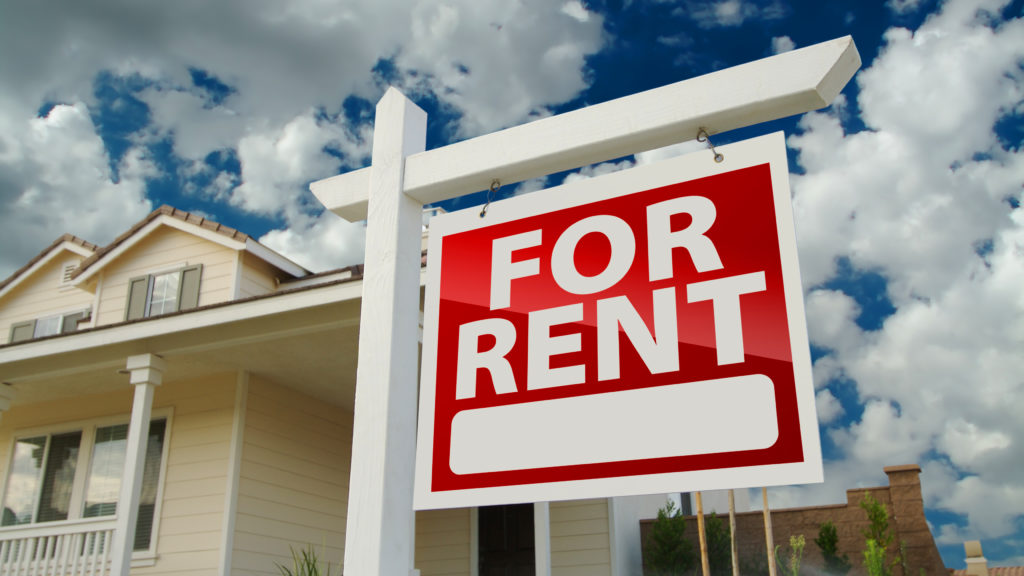
You’ve decided it’s time to upsize, downsize, or just get a fresh start in a new location. The logical next step in the moving process is to prepare your home to sell and get it out on the market right? Usually this is the process, but you may also be thinking, “what if we keep the home and use it for rental income?” There are plenty of good reasons why you may want to rent out instead of sell your previous home after a move – extra income, your new move being temporary, or perhaps you’re concerned you’d have a hard time selling. At the same time, there are many things to consider when stepping into the world of landlord/tenant relations.
Is Renting Right for You?
Do you love your home so much that you can see moving back into it later after a temporary move to another location? Are you looking for an extra tax break through property depreciation? Are you considering rental income as a boost to help you save for retirement? These are all great reasons to consider holding onto your old property, but you should also ask yourself some additional questions. If you are moving to another city, are you prepared to be a long distance landlord, understanding that you will likely need to hire someone to maintain and manage the property for you? Can you afford the other costs of rental property ownership, such as the expense of advertising the available property and turning costs (expenses associated with things like cleaning and painting between tenants). You will also still be paying property taxes and insurance on the original home, along with any utilities while your property is between tenants. Be sure to evaluate the expected expenses before you decide for sure – these costs of rental property ownership often run 30-40% of the income you will receive from renting the home.
What’s Next When You Decide to Rent?
If you’ve decided that renting is in fact for you, what comes next? The first step is the same whether you are preparing to sell your home or rent it out – clean and repair! You want your house to be in tip top shape so you can ask the highest amount possible for rent. This includes interior and exterior patching and painting, carpet cleaning and/or replacement, appliance maintenance and cleaning, and any other items that may need to be repaired or replaced.
Once you have put all of the work in to increase your home’s value, you should begin working with a real estate agent to set the appropriate rental price that will be both lucrative and competitive in your local market. You can conduct some of the research for this yourself, by scouring the internet for local rentals and checking the real estate section of your Sunday paper. If you set your price too high, you may have trouble finding a tenant. However, if you set the rent too low, prospective tenants will wonder what’s wrong with the property.
Should You Hire a Property Management Company?
While it’s not absolutely essential to hire a property manager, it can make your life a little easier, especially if you will be living in another city once you move. Ask for referrals – your real estate agent will likely know several local property management companies to direct you to. Conduct interviews with at least three different companies before making a set decision. You will want to ask about the following:
Accreditation. While not required, it’s definitely smarter to only work only with firms that are Accredited Management Organizations (AMOs).
References. Don’t just ask for them then file them away. Actually contact some of the other property owners they have worked with to find out about the working relationship.
Tenant screening. Reputable property management firms should have a thorough screening process in place for all tenants, including a credit check and criminal background investigation.
Contact. Can you easily reach your property manager by phone, text and email? Do they have a 24-hour emergency number for tenants to use if there is an issue?
Experience. How long have they been in the property management business?
Maintenance. How long does it typically take to repair problems? Do they offer a guaranteed turnaround time for repairs? Is maintenance handled internally or through an outside contractor?
Evictions. How do they handle the unfortunate need to get rid of a tenant?
Even if you do not plan to use a property management company, interview one or two to get a feel for how much work they could take off your hands. You may change your mind about using one, or at least you may get a better idea of how much time, energy and expense it will take to handle all of the rental property work on your own.

